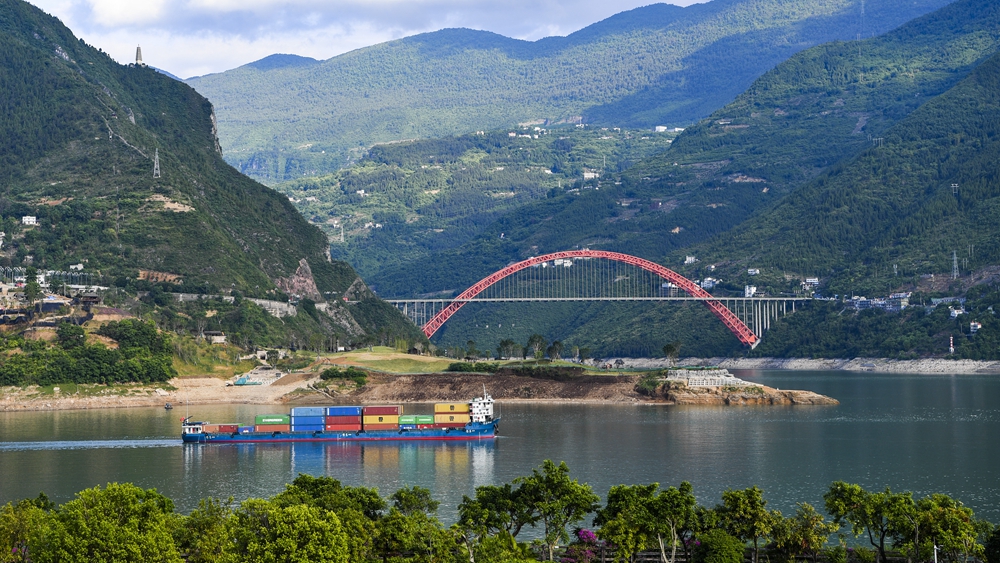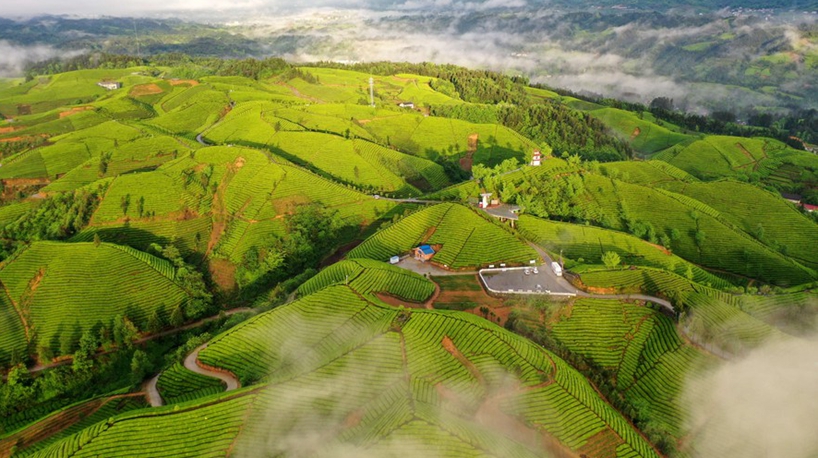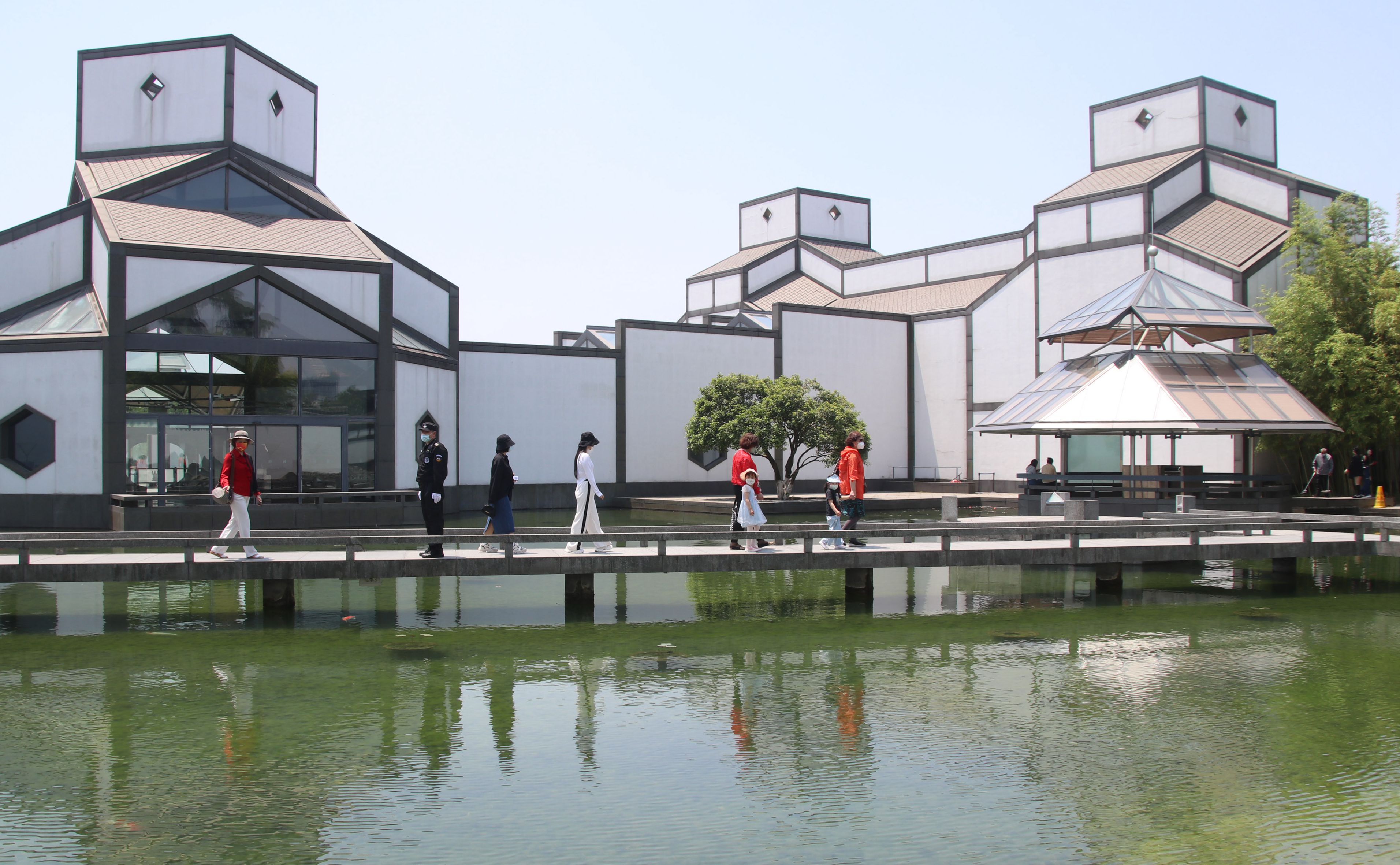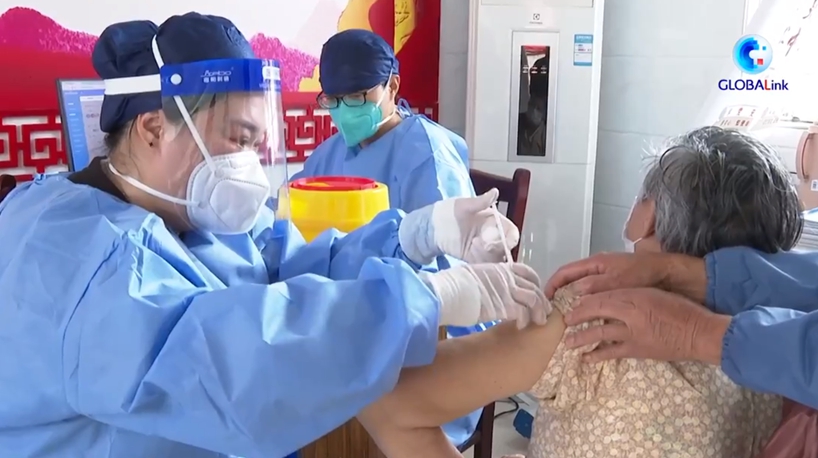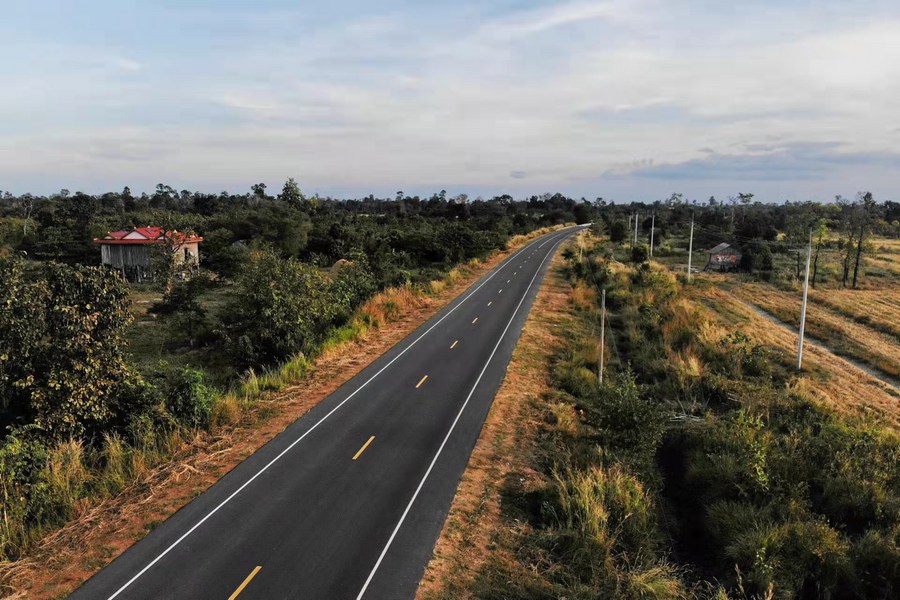
Aerial photo taken on Feb. 7, 2022 shows the China-funded stretch of National Road No. 7 in Kratie province, Cambodia. (Photo by Ly Lay/Xinhua)
Cambodian Prime Minister Samdech Techo Hun Sen said more than 3,000 km of national roads and eight large-scale river bridges in Cambodia have been built with China's financial support, adding that Chinese-invested hydropower plants have played a crucial role in securing electricity security in the kingdom.
PHNOM PENH, May 28 (Xinhua) -- Cambodian Prime Minister Samdech Techo Hun Sen said here on Friday that China is the major contributor to the development of transport infrastructure and electricity in the Southeast Asian nation.
In a speech delivered via video link to an international conference on the future of Asia, Hun Sen said more than 3,000 km of national roads and eight large-scale river bridges in Cambodia have been built with China's financial support.
He added that Chinese-invested hydropower plants have played a crucial role in securing electricity security in the kingdom, while the Phnom Penh-Sihanoukville Expressway project will play a vital role in helping boost economic growth when it is put into use.
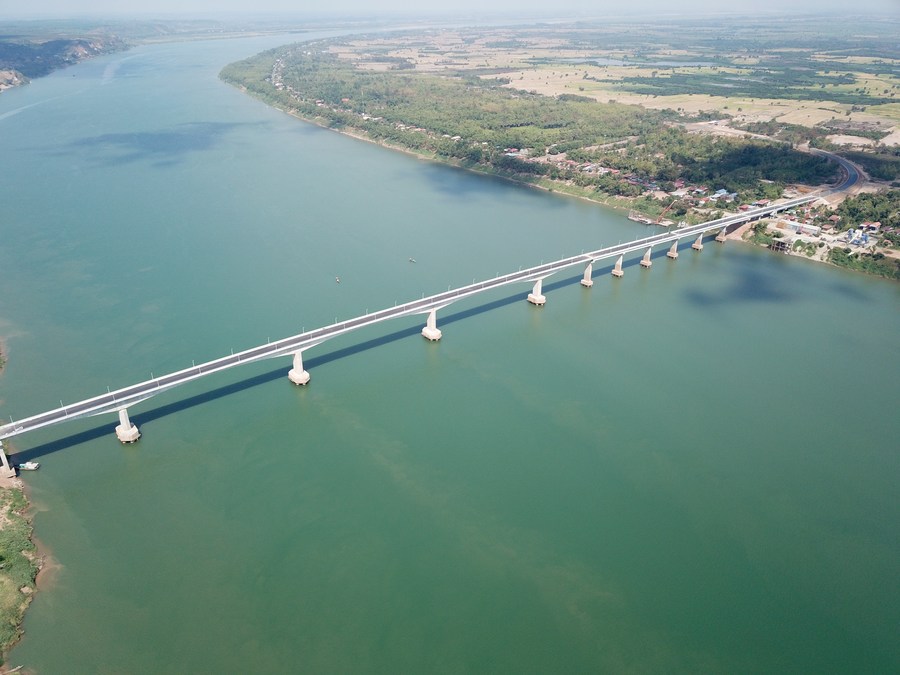
Aerial photo taken on March 11, 2021 shows the eighth Cambodia-China Friendship Bridge across the Mekong River, connecting Kampong Cham province and Tboung Khmum province in southeastern Cambodia. (Shanghai Construction Group/Handout via Xinhua)
The kingdom has seven Chinese-built hydropower plants with a combined capacity of 1,328 megawatts.
Vasim Sorya, a spokesman for Cambodia's Ministry of Public Works and Transport, said China-funded infrastructure projects have played a key role in enhancing transport efficiency, reducing time and transportation cost, improving competitiveness in the logistics sector and attracting foreign investors.
"The transportation sector has greatly contributed to boosting economic growth," he told Xinhua. "With China's financial assistance, we are able to build and improve our road infrastructure to better serve our people, tourism and logistics industry."

Aerial photo taken on Sept. 9, 2021 shows the China-funded Morodok Techo National Stadium in Phnom Penh, Cambodia. (Photo by Chen Gang/Xinhua)
Sorya said under the Belt and Road Initiative, China has helped develop roads, bridges and other major infrastructure in Cambodia and other developing countries.
"China-financed infrastructure projects are essential to help boost our socio-economic development and improve our people's livelihoods," he said.
Sin Chanthy, president of the Cambodia Logistics Association, agreed that China's financial support has importantly helped Cambodia connect urban and rural areas as well as farms and markets.
"Moreover, it has helped link Cambodia with its neighboring countries such as Thailand, Vietnam and Laos," he told Xinhua. "All in all, transport infrastructure is the key element to support economic development and poverty reduction."
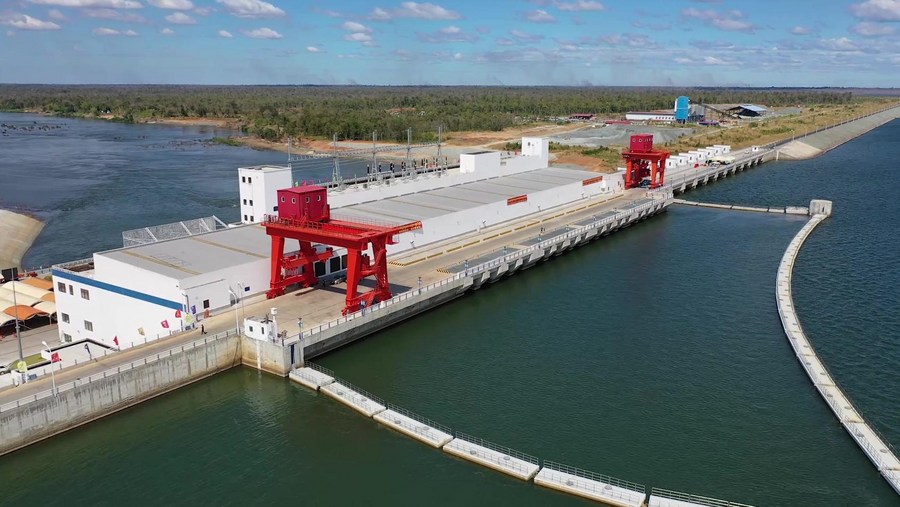
Photo taken on Dec. 16, 2018 shows the Lower Sesan II hydroelectric power station in Stung Treng province, Cambodia. (Xinhua)
Chea Chandara, president of the Logistics and Supply Chain Business Association in Cambodia, said China is the key supporter for infrastructure development in Cambodia.
"China-backed infrastructure projects have importantly contributed to economic growth and development of the logistics industry," he told Xinhua.
Speaking of the 2 billion-U.S. dollars Phnom Penh-Sihanoukville Expressway, Chandara said this Chinese-invested road will inject a new impetus into the country's economic development, as it connects Phnom Penh to the deepwater seaport in Sihanoukville.
"There's no doubt that the expressway will provide great benefit to our economic development as it will facilitate goods transportation between Phnom Penh and the Sihanoukville Autonomous Port, a major gateway for Cambodia's trade exchange with other countries," he said.
The 190-km-long expressway will be ready for trial use in July 2022.■


